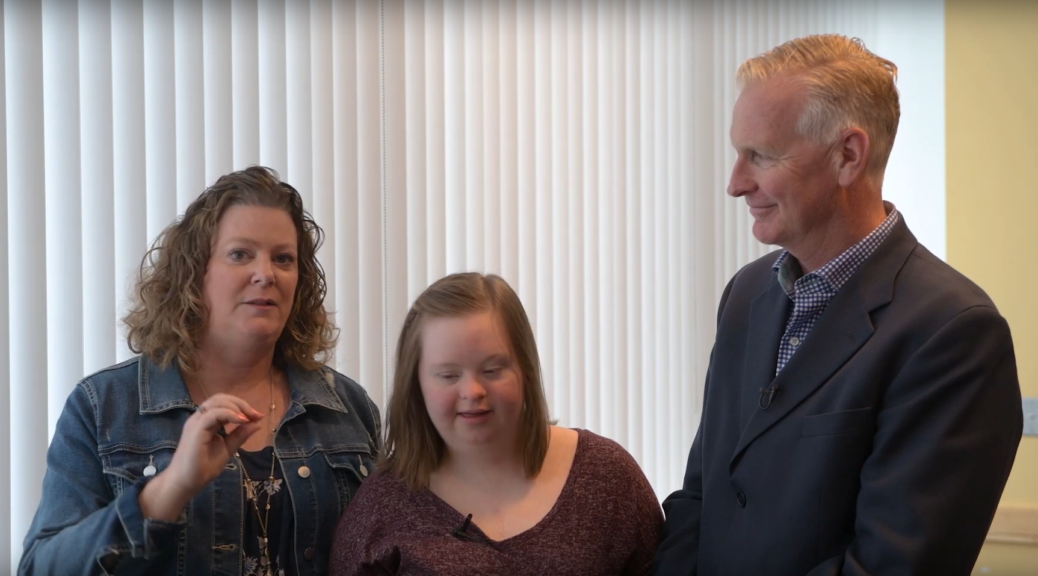
Parents like Amy and Tim Haugen from Minneapolis, Minnesota trialed DSC2U. Photo: Down Syndrome Program at Massachusetts General Hospital
“What I was impressed with is that every recommendation in the online tool has a link to further information and I was blown away by all the resources linked. It was all right there and I didn’t have to Google it,” said Amy Haugen.
BOSTON (PRWEB)
March 01, 2020
Current estimates suggest that over 95% of individuals with Down syndrome do not have access to a Down syndrome specialty clinic. Researchers at Massachusetts General Hospital (MGH) created Down Syndrome Clinic to You (DSC2U) as a way to address this need. MGH and founding philanthropic supporter, LuMind IDSC Foundation, today announced plans to launch http://www.DSC2U.org in the spring of 2020 and bring access to the specialty clinic expertise to every family in the US and internationally who needs it.
With DSC2U, caregivers have an opportunity to complete an online intake form, where they can identify current health concerns about their son or daughter with Down syndrome. The responses will generate two personalized documents–a plan for caregivers and another one for the primary care provider.
“Increasing access to treatments is a mission focus for LuMind IDSC” said Hampus Hillerstrom, CEO of LuMind IDSC Foundation, “LuMind IDSC Foundation is proud to be a founding philanthropic supporter to launch this tool. More importantly, we are honored to collaborate with MGH to provide DSC2U to approximately 190,000 individuals with Down syndrome in the United States currently lacking access to the best practices in healthcare from Down syndrome medical experts.”
The collaboration includes funding for additional software development to make the tool available for public use. LuMind IDSC Foundation is also providing educational and outreach support to bring DSC2U broadly to families that don’t have access to specialized Down syndrome clinics.
Parents like Amy and Tim Haugen from Minneapolis, Minnesota who have trialed DSC2U found the tool very useful. “What I was impressed with is that every recommendation in the online tool has a link to further information and I was blown away by all the resources linked. It was all right there and I didn’t have to Google it,” said Amy Haugen. “The world knows how fantastic Harvard Medical School and Mass General is. It means a lot to us and the trust we have in that and to know Dr. Skotko as well made us feel comfortable with DSC2U,” added Tim Haugen.
The personalized documents that caregivers get with DSC2U will include medical information and resources generated by a computer and based on the form responses. The reports are assembled with information that was carefully chosen by a team of Down syndrome-specialized medical experts, and whenever possible, drawn from national healthcare guidelines for people with Down syndrome. “No longer will geography be a barrier for families getting high-quality medical information about Down syndrome,” says Dr. Brian Skotko, the Emma Campbell Endowed Chair on Down Syndrome at Massachusetts General Hospital. “With DSC2U, families will now have access to the best information and resources about Down syndrome, personalized to their family’s needs.”
DSC2U is scheduled for public release in the spring of 2020. Interested families are encouraged to sign up for a launch notification at dsc2u.org/signup. For more information about LuMind IDSC Foundation, visit http://www.LuMindIDSC.org.
Share article on social media or email:

